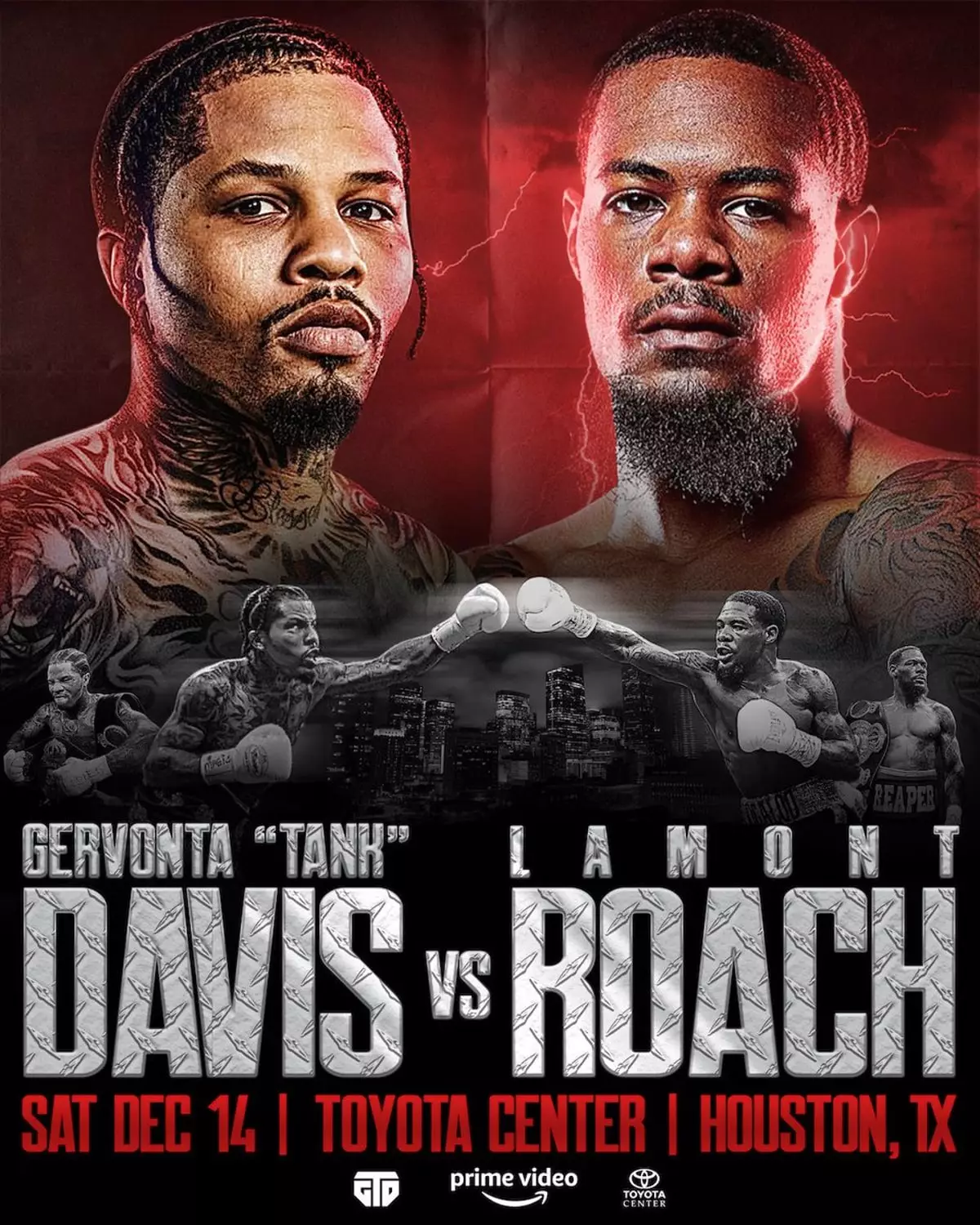The boxing world has been stirred with the recent news regarding the highly anticipated matchup between Gervonta ‘Tank’ Davis and Lamont Roach. Originally set for December 14, 2023, reports suggest that this event could face a significant delay, potentially being pushed back to 2025. Notable boxing analyst Dan Rafael has indicated that there is about a “50-50” chance the fight will still occur on the scheduled date, but many factors, particularly related to venue logistics at the Toyota Center in Houston, Texas, are causing the uncertainty.
Rafael has alluded to the lack of promotional activity surrounding the fight, including press releases and press conferences, which typically precede major boxing events. This absence signals potential trouble in securing the venue, rather than issues with the fighters’ contracts. As both Tank and Roach remain ready to fight, it makes fans wonder if the logistical challenges could indeed lead to a complete cancellation of the event or a long postponement.
Interestingly, many fans and critics alike have expressed their hope for the fight to be scrapped altogether. The general consensus is that the matchup between Davis and Roach is perceived as unexciting and unbalanced—Davis, known for his incredible knockout power, with an impressive record of 30 wins and 28 KOs, is seen as poised to dominate Roach, who has struggled to gain traction in the sport. From a competitive standpoint, the boxing community argues that this fight lacks the necessary intrigue, given that Roach, primarily a technical boxer, may not present a credible challenge against the formidable puncher like Davis.
Some critics are advocating for the Premier Boxing Champions (PBC) to reconsider their plans and instead select a higher-ranked lightweight contender, one who could provide a more compelling contest for Davis’s WBA lightweight title. Roach, currently positioned as a super featherweight, raises doubts whether he possesses the punch power to deter ‘Tank’ from advancing aggressively.
Discussing the fight’s location reveals another layer of complexity. While Davis cited the matchup as a regional variation appealing to East Coast fans, the event’s actual staging in Houston raises questions about its targeted audience. Fans from Baltimore and Washington D.C.—the home cities of the respective fighters—may not find it practical to travel for this fight when interest levels for such a one-sided bout appear tepid at best.
Ultimately, the organizers must consider the implications surrounding pay-per-view purchases; if the audience isn’t excited, potential revenue streams will dwindle significantly. The anticipation surrounding a fight is just as integral to its success as the fighters themselves. If a champion like Davis is to maintain his stature and legacy, it’s essential for his matches to captivate, rather than frustrate, his fan base.
Only time will tell whether or not the matchup is officially postponed, canceled, or rescheduled. The boxing community remains vigilant, hoping for an announcement that brings clarity to this uncertain landscape. The buzz around Tank Davis has always been charged with the promise of excitement, and the sport’s fans deserve more than a potentially lackluster engagement. Whether this bout leads to a strengthening of Davis’s belt relevancy or merely dissipates into a forgotten endeavor is yet to be determined.

